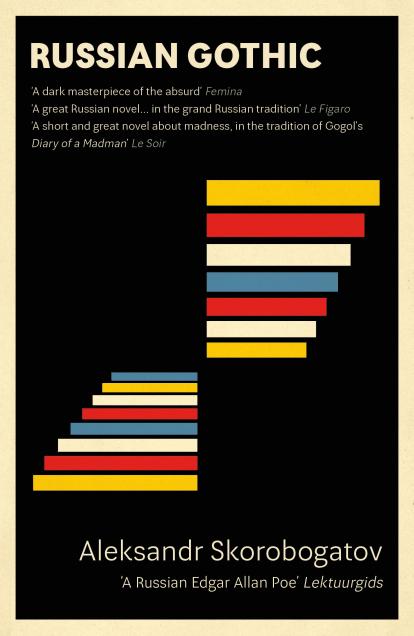Russian Gothic by Aleksandr Skorobogatov review: a soldier’s story
This stark depiction of a violent Russian veteran is more chilling in the light of the Ukraine war
Mia Levitin
Sunday May 14 2023, 12.01am BST, The Sunday Times
“They say he murdered women using a short-bladed knife with a crooked bone handle to rip open their bellies,” is how Aleksandr Skorobogatov’s noirish novella, aptly titled Russian Gothic, opens. The character in question, who calls himself Sergeant Bertrand, “liked to wiggle his toes in there, but he didn’t like it at all when the women screamed”.
Skorobogatov’s study of a tormented mind unable to parse dreams from reality is every bit as unnerving
Russian Gothic joins the tradition of tales told from the perspective of unhinged narrators, from Gogol’s Diary of a Madman (1835) to Bret Easton Ellis’s American Psycho (1991). Despite what we’re primed to expect, it’s about violence arising from sexual jealousy rather than a cold-blooded serial killer. But Skorobogatov’s study of a tormented mind unable to parse dreams from reality is every bit as unnerving.

The book was first published as Sergeant Bertrand in Russia in 1991, two years after Soviet troops withdrew from Afghanistan. Nikolai, a young veteran, opens the door one morning to a man he refers to as Sergeant Bertrand. The affections the caller lavishes on Nikolai’s wife, Vera, a beautiful stage actress, lead him to imagine that they are having an affair. Yet she insists there was no visitor, casting doubt on Nikolai’s reliability from the start (Vera is Russian for “faith”).
The couple lost their son, who died of causes that remain hazy, but the implication is that Nikolai is responsible. Despite his ardour, he regularly beats his wife, “trying to stay away from her face so as not to tarnish it with bruises”. His assault on her co-star prompts Vera to quit her flourishing career to work as a street sweeper. With Sergeant Bertrand egging him on — from what we start to suspect is a perch inside his own head — Nikolai’s paranoia about his ever-forgiving wife’s infidelity erupts into violence.
The depiction of Nikolai’s brutality is all the more chilling in light of the conscripts being sent en masse to fight in Ukraine
The depiction of Nikolai’s brutality is all the more chilling in light of the conscripts being sent en masse to fight in Ukraine. Having suffered brain trauma in Afghanistan, Nikolai drinks from breakfast to bedtime. “The government is paying us damages for injuries we sustained,” he says, “to compensate us for our war wounds, for the blood we poured like fertilizer onto the Afghan soil.”
Having sold nearly a million copies in Russia, Russian Gothic is the first of Skorobogatov’s five novels to be published in English, in a translation by Ilona Yazhbin Chavasse that is faithful to the original. Born in Belarus, which had only one state-owned publisher in the Soviet era, Skorobogatov was told by an editor that he would never be published because his writing was “too ‘different’, ideologically unacceptable and politically incorrect”. Now based in Belgium, he still regrets the decade of his writing life lost to censorship — state suppression that we had hoped had collapsed with the Soviet Union, but is silencing a new generation under Putin’s regime.
Skorobogatov’s complex psychological portrait linking it to the PTSD of war is riveting
While themes of sexual jealousy are as old as Ovid, we rarely see partner abuse in adult fiction, and Skorobogatov’s complex psychological portrait linking it to the PTSD of war is riveting.
Russian Gothic by Aleksandr Skorobogatov, trans. Ilona Yazhbin Chavasse
Old Street £8.99 pp128